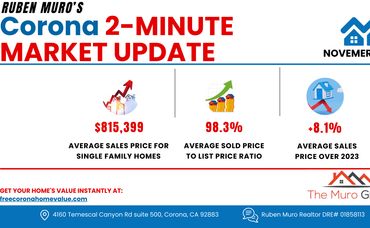For homeowners in beautiful Corona, California, understanding real estate taxes is an essential aspect of responsible homeownership. Real estate taxes play a crucial role in funding local infrastructure, schools, and essential services, but they can also be a source of confusion and concern for many. In this guide, we will demystify the world of real estate taxes, helping you navigate the tax landscape in Corona and ensuring you make informed financial decisions regarding your property.
Understanding Property Assessment
Property taxes are levied by local governments to fund a wide range of services, including schools, police and fire departments, road maintenance, and more. The amount you pay in property taxes is typically based on your property’s assessed value. In Corona, the Riverside County Assessor’s Office assesses property values, taking into account factors such as location, size, improvements, and market conditions.
Property Assessment Appeals
It’s important to know that property assessments are not set in stone. If you believe your property has been overvalued, you have the right to appeal the assessment. This can potentially lead to a reduction in your property taxes. The Riverside County Assessor’s Office provides a process for property assessment appeals, allowing homeowners to present evidence and argue their case for a lower assessment.
Understanding Property Tax Rates
In addition to the assessed value of your property, property tax rates play a significant role in determining your tax bill. These rates are set by local governments, including cities, counties, and school districts. In Corona, property tax rates are typically calculated as a percentage of your property’s assessed value. It’s crucial to keep in mind that these rates can vary depending on your location within the city.
Exemptions and Deductions
Corona, like many other areas, offers various exemptions and deductions that can help homeowners reduce their property tax burden. Some common exemptions include those for senior citizens, disabled veterans, and low-income individuals. It’s essential to check with the Riverside County Assessor’s Office to see if you qualify for any of these exemptions, as they can significantly impact your tax liability.
Property Tax Due Dates and Payment Options
Property taxes in Corona are generally due in two installments, with the first installment due on November 1st and the second installment due on February 1st. It’s crucial to mark these dates on your calendar to avoid penalties and interest charges. Additionally, Corona offers several payment options, including online payments, in-person payments, and mailing your payment to the Riverside County Treasurer-Tax Collector’s Office.
Conclusion
In conclusion, understanding real estate taxes is a vital part of responsible homeownership in Corona, California. By comprehending property assessment, appealing assessments when necessary, staying informed about local tax rates, exploring available exemptions and deductions, and adhering to due dates and payment options, you can navigate the complex world of property taxes with confidence.
If you have any further questions or need assistance with your property tax-related concerns in Corona, feel free to contact us at YHSGRM Real Estate Services. You can reach us at 951.741.5368 or via email at [email protected]. Our team of experts is here to help you make the most of your homeownership experience in Corona, ensuring that you are well-informed and prepared for your property tax obligations.
Remember, a well-informed homeowner is a empowered homeowner, and we are here to support you every step of the way.





